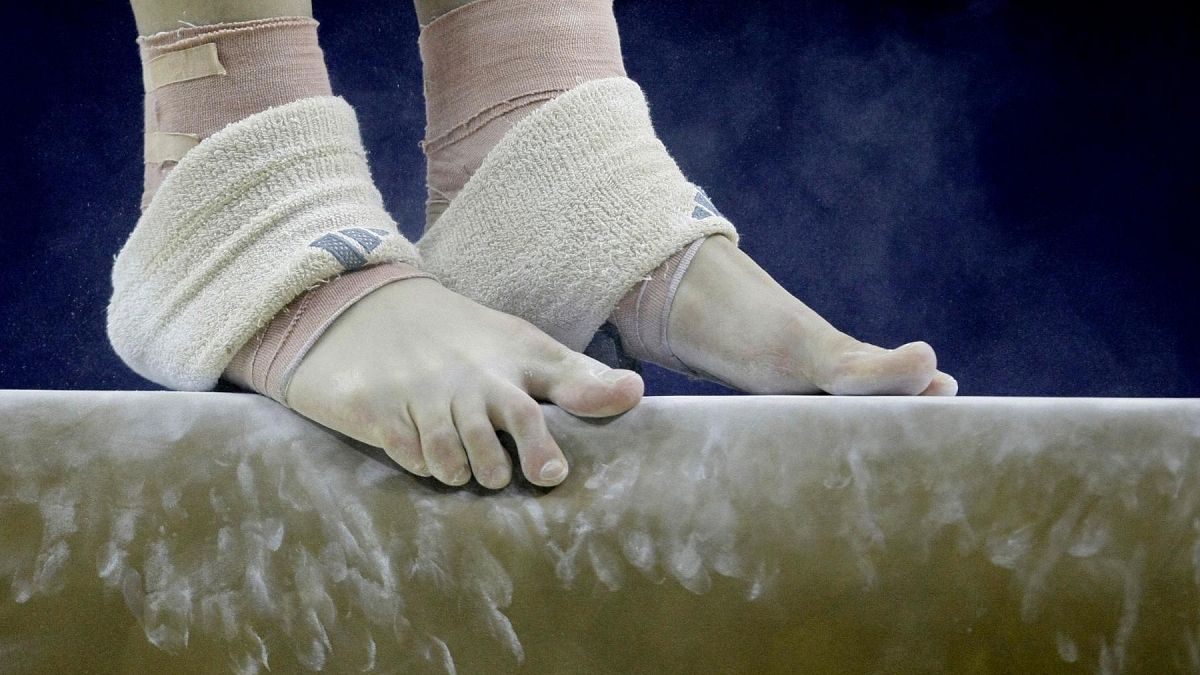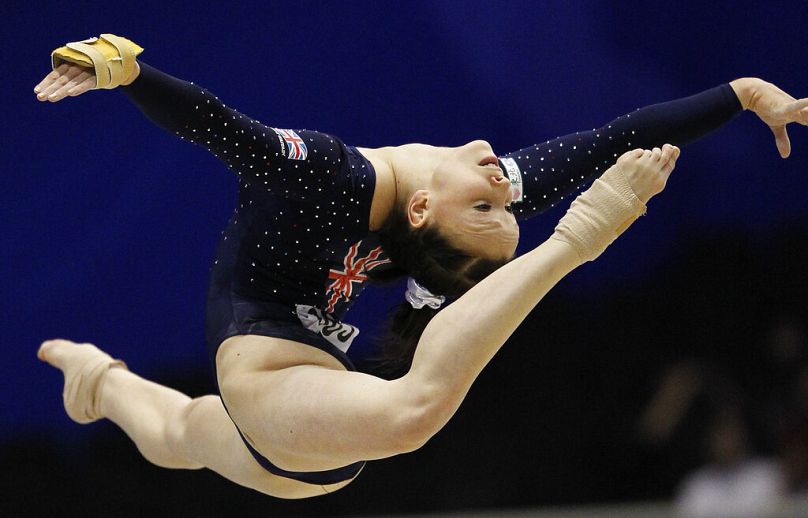A new report into allegations of abuse at British Gymnastics finds a catalogue of abusive behaviour towards young athletes during training.
British Gymnastics failed for years to address abuse complaints as it prioritised financial growth and medals, according to an independent investigator’s report that calls for governance reforms.
The “Whyte Review” is the culmination of a nearly two-year-long investigation commissioned after prominent British gymnasts went public in the summer of 2020 about years of emotional and physical abuse by coaches.
“I have concluded that gymnast wellbeing and welfare has not been at the centre of BG’s culture for much of the period of review,” Anne Whyte wrote in her 306-page report released on Thursday, “and it has not, until very recently, featured as prominently as it ought to have done within the World Class Program and within the development pathways used for talented gymnasts.”
Abuse against gymnasts - mostly young girls - included bullying, dangerous weight management, and physical force. A smaller percentage of cases involved sexual abuse.
“One former elite gymnast described being made to stand on the beam for 2 hours because she was frightened to attempt a particular skill,” the report said. "There was more than one submission about gymnasts being strapped to the bars for extended periods of time, sometimes when in great distress."
Whyte, commissioned by UK Sport and Sport England, blamed former BG chief executive Jane Allen for a “lack of leadership and an organisational failure” regarding athlete wellbeing. Allen, who retired in 2020 after 10 years on the job, fostered a culture that prioritised membership and financial growth, the report said.
“Regrettably, the focus on financial security, whilst undoubtedly important, was not matched by a focus at board level on culture, safeguarding, welfare and the gymnasts’ voice during the period of review,” Whyte wrote.
Whyte received information from 400 individuals and there were 118 separate submissions to a British Athletes Commission hotline. They included 133 current and former gymnasts. Whyte referred more than three dozen cases to law enforcement because of possible criminal activity. The review covered activity from 2008 to 2020.
Among her 17 recommendations, Whyte urged the hiring of an education director, overhauling the case management system, and appointing independent board members “with relevant professional expertise in safeguarding and athlete welfare.” She also called for the government to appoint an independent ombudsman to protect children across sports.
British Gymnastics said it has accepted all of the recommendations and key findings.
“We will not shy away from doing what is needed,” said CEO Sarah Powell, who was hired last October. "I want to wholeheartedly apologise to the gymnasts who have suffered as a result of us not working to the standards we set ourselves. We are sorry.
“We will now fully consider the detail of the review and put in place a roadmap that addresses the recommendations in full. We will build a new culture and ensure the gymnast's voice is at the heart of all we do. We will change gymnastics for the better."
British gymnasts came forward two years ago partly inspired by the documentary “Athlete A” about sexual abuse in the USA Gymnastics. The film chronicled the process of women pursuing justice against Larry Nassar, who in his 29 years as the USA Gymnastics women’s team’s doctor used medical treatment as a guise for molesting hundreds of young athletes. Nassar was sentenced to 40 to 125 years in prison in 2018.
British Gymnastics also faces legal action by female claimants who alleged that bullying, controlling behaviour and inappropriate use of physical force against athletes as young as 6 years old were part of a “winning at all costs” mentality.
In the United States, Olympic gold medalist Simone Biles and dozens of other women who say they were sexually assaulted by Nassar are seeking more than $1 billion from the FBI for failing to stop the sports doctor when the agency first received allegations against him.

